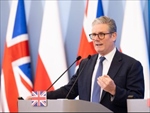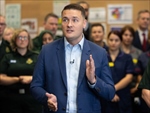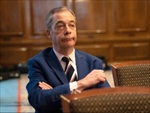Theresa May

Theresa May

Theresa May, a British politician who served as Prime Minister of the United Kingdom from 2016 to 2019, is best known for her efforts to navigate the complexities of Brexit, facing significant political challenges and parliamentary opposition during her tenure, which ultimately led to her resignation.
Theresa May's resignation
- Friday, 24 May 2019
Theresa May has fought back tears as she announced she will resign on 7 June, following months of pressure.
May Seeks to Axe Human Rights Act, Citing Deportation and Criminal Issues
- Sunday, 02 October 2011
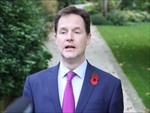
Home Secretary Theresa May has called for the Human Rights Act to be scrapped, citing problems it causes for the Home Office. She wants to replace it with a British Bill of Rights. Prime Minister David Cameron agrees, saying he wants to change the "chilling culture" created by the act. However, Deputy Prime Minister Nick Clegg and other Liberal Democrats have defended the act, warning that scrapping it would threaten the coalition.
Conservative Party Conference Agenda Unveiled: Key Speeches and Debates Planned in Manchester
- Friday, 30 September 2011
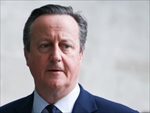
The Conservative Party autumn conference will take place in Manchester, featuring a series of speeches and debates. The agenda includes discussions on the future of the UK, environment and climate change, international development, welfare reform, jobs, economy, housing, local government, transport, Olympics and Paralympics, London, policing, criminal justice, young people, cities, schools, NHS, defence and foreign policy, with speeches from notable party figures such as Foreign Secretary William Hague, Chancellor of the Exchequer George Osborne, Mayor of London Boris Johnson, Home Secretary Theresa May, Justice Secretary Ken Clarke, Education Secretary Michael Gove, Health Secretary Andrew Lansley, and Prime Minister David Cameron.
London Tube Fares Soar by 7%: Mayor Johnson Defends Above-Inflation Rise Amid Public Outcry
- Wednesday, 14 September 2011

London's transport network will see an average 7% fare increase from January 2012 to maintain investment. The rise is above inflation (currently at 5%), with some services increasing by more or less than 7%. Fares include a 10p increase for Oyster pay-as-you-go bus fares to £1.40, and Tube fare increases of between 10p and 30p, as well as cash fares rising by 30p to 40p. London Travelcard season ticket prices will also rise by 8%. The Mayor, Boris Johnson, cited the need to balance current passengers' needs with continued investment in the transport system, while critics such as Ken Livingstone and Caroline Pidgeon argued that the rises were unjustified and would disproportionately affect those struggling financially.


